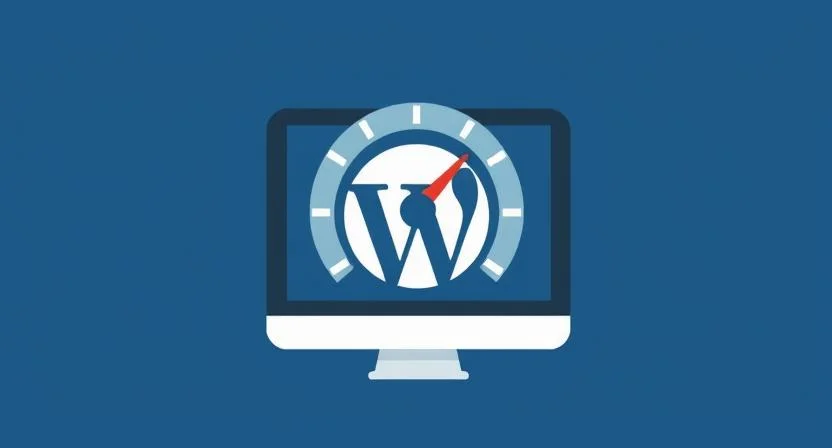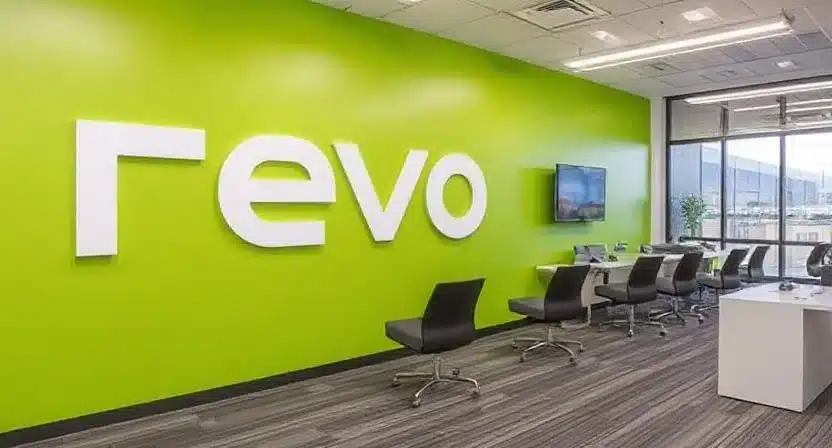Qantas to Open Adelaide AI Innovation Centre, Creating 400 Tech Jobs and Transforming Airline IT Strategy

In a major strategic move, Australia’s flag carrier Qantas has announced plans to establish a new technology and innovation centre in Adelaide’s central business district. The hub is set to open in early 2026 and will employ more than 400 technology-specialist staff, including software engineers, AI and data specialists and digital experience designers.
The initiative is part of Qantas’ broader push to deepen its digital, AI and customer-experience capabilities; to embed advanced technology more firmly across its operations; and to position itself for growth, including ultra-long-haul services and enhanced digital passenger experience.
Below we unpack what the announcement entails, why it matters for Qantas and the aviation sector, how Adelaide and South Australia factor in, the challenges ahead, and the strategic implications for tech, region and airline.
What the Announcement Covers: Details & Scope
Role and Location
- The centre will be based in the Adelaide CBD under an agreement between Qantas and the South Australian Government.
- It will be the airline’s first such dedicated innovation hub outside Sydney.
- The hub is slated to open in early 2026.
Job Creation
- Qantas says the centre will create over 400 technology jobs. Some reports cite “more than 420” by the end of 2028.
- Roles include user interface/experience designers, software developers, business analysts, and AI/data specialists.
- While some existing Qantas staff may relocate to Adelaide, the majority of roles will be new hires in South Australia.
Strategic Partnerships & Talent Pipeline
- The hub will collaborate with the University of Adelaide and the Australian Institute for Machine Learning to build graduate recruitment pathways and co-innovation programmes.
- The South Australian government confirmed that it will provide incentives (details undisclosed) tied to performance benchmarks.
Focus Areas of Innovation
- Qantas emphasises the new centre will build “digital products and experiences” that enhance travel across booking, check-in, in-flight, baggage and disruption recovery.
- The airline already uses AI for predictive maintenance, flight-path planning and supplier-contract monitoring; the new hub will expand these capabilities.
Why This Matters: For Qantas and the Aviation Tech Landscape
Enhancing Customer Experience
For an airline, the physical plane and logistics are vital, but increasingly the digital touch-points (booking, mobile app, check-in, disruptions, baggage tracking) define loyalty and margin. Qantas’ investment signals it views its tech stack and digital experience as strategic differentiators.
By embedding a purpose-built innovation centre, Qantas is trying to make technology a core rather than a support function.
Operational Efficiency & Competitive Advantage
Advanced technology, especially AI/data pipelines and digital design, can yield significant operational gains: fewer delays, smarter routing, predictive maintenance, and better resource utilisation. For Qantas, this is especially relevant as it readies ultra-long-haul services (e.g., Project Sunrise) and seeks to scale its global network.
Technology investment may translate into cost advantage, improved reliability and better passenger experience, all critical in the competitive airline sector.
Regional Development & Talent Location Strategy
Selecting Adelaide (outside of the traditional Sydney-Melbourne tech corridor) is strategic: it taps into local talent, may benefit from cost or incentive advantages, and positions South Australia as a tech destination.
For Qantas, diversifying the geographic footprint of its tech resources may reduce concentration risk, broaden talent pools, and anchor innovation outside the major city hubs.
Signalling to Industry & Investors
Large incumbents investing in tech innovation hubs send a message: “We are not just transportation companies, we are digital experience and operations companies.” In the broader aviation sector and amongst tech investors, such announcements help position an airline for growth, modernisation and relevance. The hub will likely help Qantas attract talent, be seen as tech-forward and invest in future capabilities.
Strategic Fit with Qantas’ Broader Corporate and Fleet Strategy
Qantas’ ultra-long-haul Project Sunrise (non-stop Sydney–London/New York) and new aircraft acquisitions (e.g., Airbus A321XLR, A350-1000) require seamless digital operations and efficient systems. In-flight connectivity, baggage handling, scheduling complexity, and real-time disruption management all matter more in these extended-reach operations.
By investing in the innovation centre now, Qantas is aligning its tech infrastructure with its future fleet and route strategy. The hub can support digital tools to manage more complex flights, data flows, real-time passenger interaction and scalable global operations.
Why Adelaide & South Australia? Strategic Considerations
Access to Growing Tech Ecosystem
Adelaide is becoming a tech-and-innovation hotspot in Australia. The precinct known as Lot Fourteen hosts AI, machine-learning, space-tech and start-up activity.
By situating the centre in Adelaide, Qantas taps into that ecosystem, partnerships, emerging talent and innovation momentum.
Government Support & Incentives
The South Australian government appears to have negotiated a performance-based incentive package to attract Qantas. Such incentives, plus possibly lower-cost real estate and favourable talent conditions, make Adelaide competitive.
Economic Diversification & Regional Jobs
For South Australia, the deal is significant: high-skill jobs, tech investment and regional tech ecosystem growth. Premier Peter Malinauskas described the deal as “historic” and a major step for SA’s tech future.
Key Challenges and Considerations
Talent Recruitment & Retention
Creating 400+ specialised tech roles is ambitious. Recruiting software engineers, AI/data specialists, and UX designers within the local market will require competitive salaries, training pipelines, and retention strategies. The partnership with the University of Adelaide mitigates this, but scaling remains a challenge.
Execution Risk
Opening the centre in early 2026 implies tight timelines: location, infrastructure, staff, and partnerships. Delays or cost overruns may impact deliverables. Also, integrating the innovation centre’s output into a large incumbent airline’s legacy systems may pose change-management risk.
Alignment with Airline Complexity
Airline operations are inherently complex (fleet, regulatory, safety, global networks). The technology innovations must integrate seamlessly with operations, safety processes, regulatory compliance and legacy systems. Improving customer experience is a strong objective, but it must align with operational reliability.
Measuring Value & Return
Technology innovations and digital transformations often deliver value in the medium to long term. Qantas will need to define metrics (customer NPS, delay reductions, cost savings, digital adoption) and manage stakeholder expectations. With high investment comes scrutiny, the innovation centre must demonstrate measurable outcomes.
Regional Costs & Infrastructure
While Adelaide likely offers advantages, there may be logistical issues: access to talent pool vs larger cities, cost of relocation, infrastructure readiness, connectivity, linkages with global operations. Qantas will need to ensure the hub is globally competitive in terms of talent and output.
Implications for the Aviation and Tech Industry
For Other Airlines
Qantas’ move may trigger peer carriers to reassess their tech innovation strategies. An airline that doubles as a tech-driven business may have a competitive advantage. Others may accelerate build-outs of digital hubs, invest in AI/ML, partner with universities or governments to anchor innovation.
For Tech Ecosystems in Australia
The announcement strengthens Australia’s position in aviation-tech, digital operations, and AI/data specialist roles. It signals to venture capital, start-ups, universities and government that large Australian corporates are investing in advanced tech locally, which may spur more start-up spin-outs, partnerships and talent retention rather than brain-drain.
For Regional Economic Policy
The deal exemplifies how government-industry partnerships can attract high-skill jobs to non-capital city regions. Regional tech hubs, innovation precincts, and university partnerships will likely become more prominent in state economic strategy.
For Consumers / Travellers
Increasing investment in digital, AI and experience/design from an airline means potential benefits: smoother bookings, better baggage tracking, fewer disruptions, personalised travel, and improved in-flight experience. For the customer, this helps shift the airline from “just transportation” to “experience platform”.
Strategic Recommendations for Qantas to Maximise Value
To ensure this initiative delivers strategic value, Qantas should focus on:
- Clear Metrics & Roadmap – Define KPIs (digital adoption, baggage miss rate, check-in throughput, customer-experience scores), publish internal milestones, align with broader corporate strategy (fleet, routes, customer segments).
- Talent Strategy – Leverage the partnership with the University of Adelaide aggressively: graduate pipelines, internships, joint research; design relocation incentives and remote/hybrid work flexibility to attract national/international talent.
- Operational Integration – Ensure that the innovation centre’s output has a clear pathway to production and operational use; avoid ‘sandbox’ isolation. Prioritise projects with real operational impact (e.g., baggage handling, disruption management, predictive maintenance).
- Scalable Architecture – Build systems that scale globally (not just for Australia), since Qantas has global ambitions. Ensure architecture supports international routes, data flow, and regulatory compliance across jurisdictions.
- Change Management – Large organisations often struggle with the adoption of new tools and culture. Invest in internal communication, training, pilot programmes and ensure operational staff (ground crew, flight operations, customer service) are aligned with the tech transformation.
- Sustainability & Regional Links – Publicising the job creation story is powerful, but maintaining the regional talent pool and infrastructure matters long term. Ensure Adelaide infrastructure, connectivity, and talent retention plans are robust.
- Innovation Culture – Beyond building the centre, embed a ‘fail-fast, iterate’ culture, link with start-ups, host hackathons, and co-develop with external partners (start-ups, research centres). This can prevent the hub from becoming a bureaucratic cost centre and make it a source of strategic advantage.
Bottom Line
Qantas’ announcement of a new AI/tech innovation centre in Adelaide, aimed at creating 400+ jobs and enhancing digital, AI and experience capabilities, is a bold move that signals how major airlines are evolving in the 21st century. It is as much about technology and talent as it is about flights and aircraft.
For Qantas, this hub offers the promise of sharper customer experience, smoother operations, digital differentiation and alignment with its future-facing fleet and route ambitions. For the state of South Australia, it brings high-skill jobs, tech ecosystem momentum and regional economic uplift. For the industry, it raises the bar on what an airline’s tech agenda can look like.
Execution will be key: delivering on timeline, outcomes, integration, talent and value. If Qantas succeeds, it will move from being simply Australia’s flag carrier to being one of its leading tech-enabled travel platforms. If it falters, the cost and public attention will be significant.
In an era where customer expectations, automation, AI and seamless digital experiences define success in travel, Qantas’ investment in people, place and innovation positions the company to compete in a changing world, provided it gets the execution right.



















































































































































































































